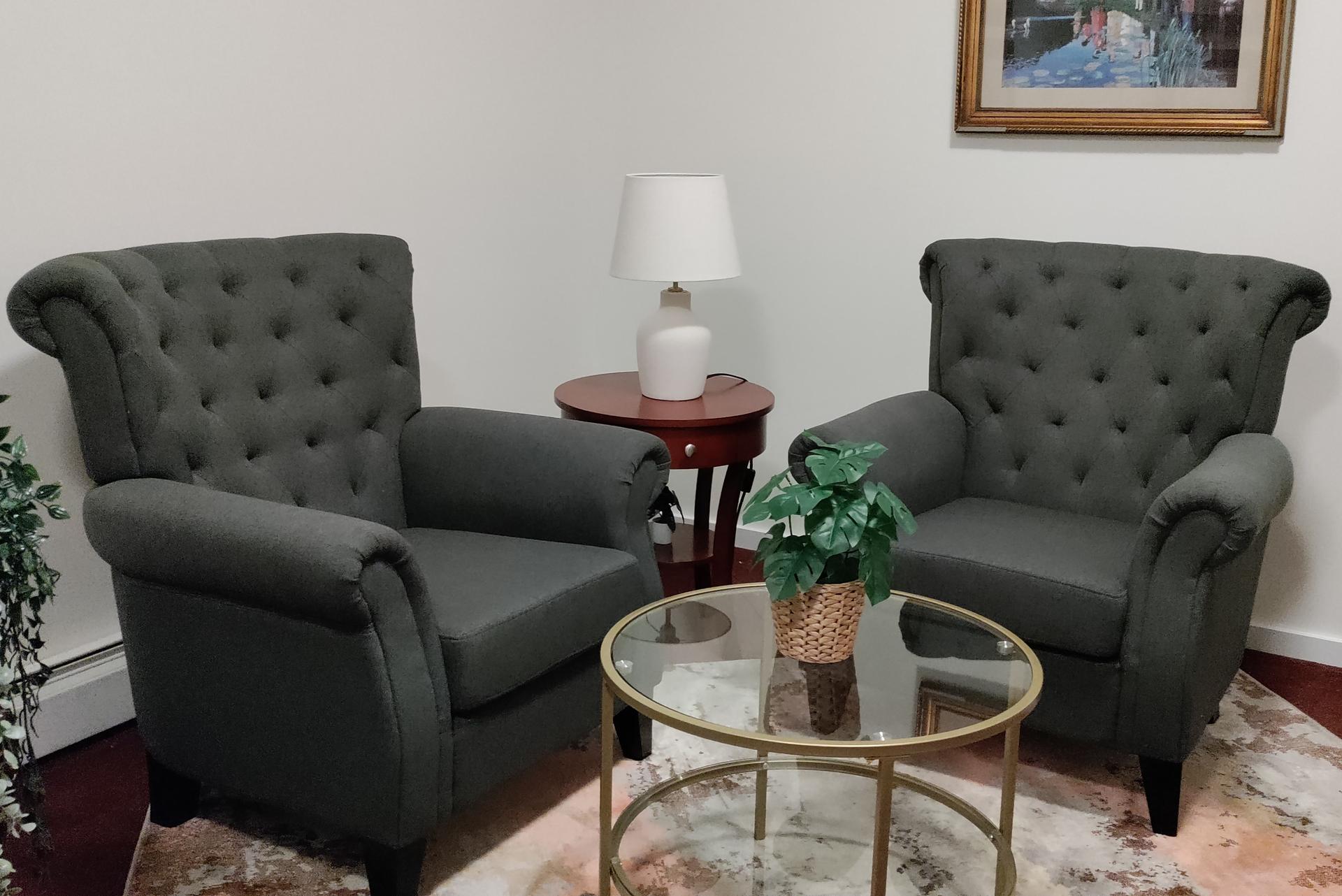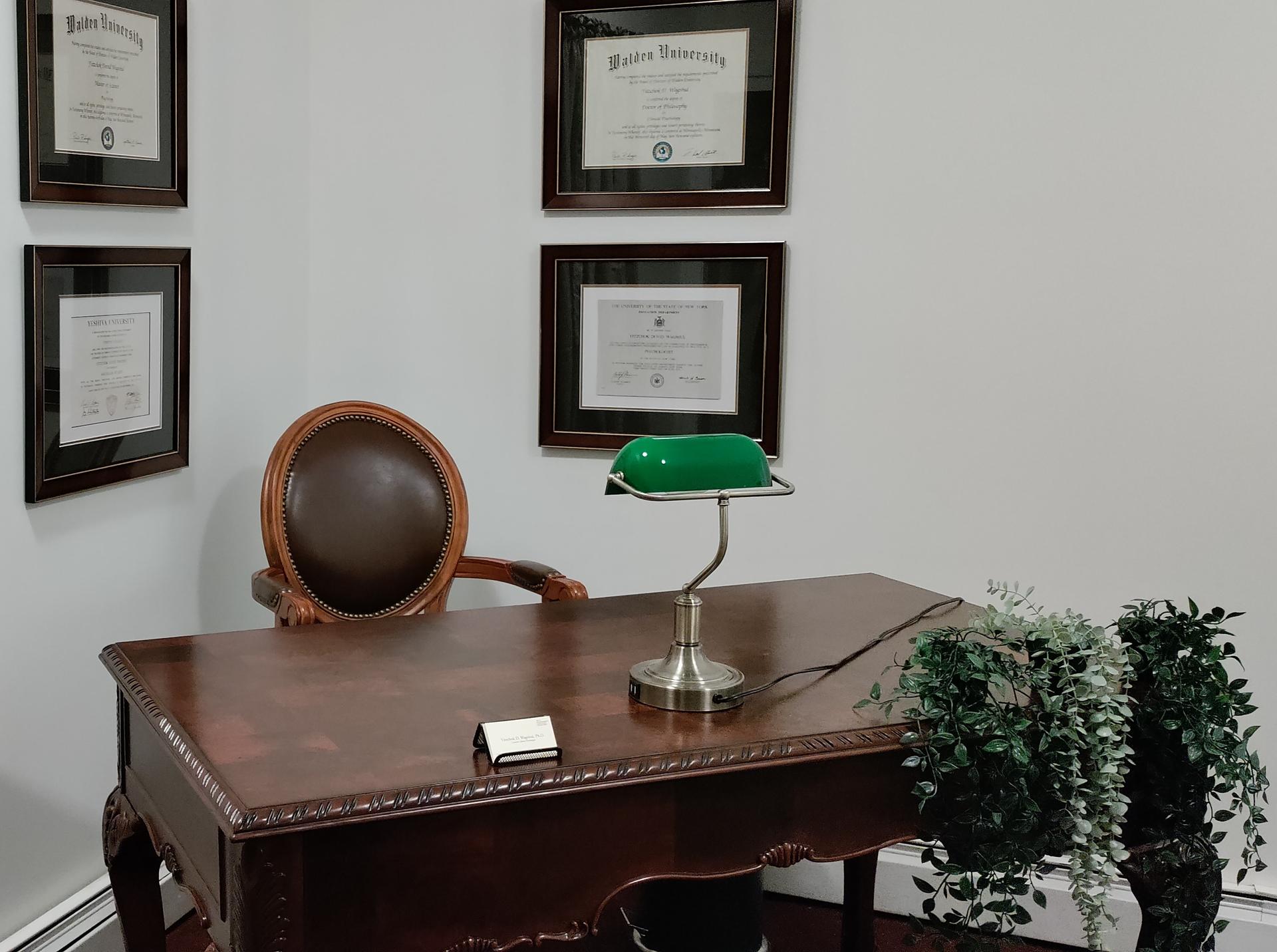Yitzchok Wagshul, Ph.D.'s style
💙 Warm 👂 Listener 💭 Open minded 🧘 CalmWhy Yitzchok Wagshul, Ph.D. chose to be in the helping profession
The Baal Shem Tov taught that a soul may descend to this world and live seventy or eighty years in order to do a Jew a favor—materially, and certainly spiritually. It’s in our nature to help others. That’s why I find it so personally fulfilling to be a psychologist. Let me introduce myself with a story:
One day, my young grandson asked me what kind of doctor I am. Well, I’m a clinical psychologist, but he was just a little boy, so I simply replied, “I’m the kind of doctor who helps sad people feel happy.” He looked at me and said, “Zaidy, that’s not being a doctor, that’s just being nice!”
That’s a cute story, but I want to tell you something: the better part of therapy is “being nice.” I know a lot of psychology, and I’m trained to diagnose and treat problems ranging from occasional anxiety to relationship difficulties to serious mental illness. My research on suicide has even been published in the leading peer-reviewed journal in its field. But if I didn’t respect each person I work with, if I didn’t view every individual with complete acceptance and unconditional positive regard, all of that would be worthless, because no one would listen to me.
Fortunately, I do have years of experience compassionately listening to people and really hearing them. I’d be glad to do the same for you.
Yitzchok Wagshul, Ph.D.'s approach
One thing I’ve learned over the years is that there’s no “one size fits all” in psychotherapy, because every person has their own personality and life experience. I respect that, so I’ve put in a lot of time learning a diverse range of therapeutic approaches. That way, I can tailor my approach to your particular needs.
More specifically, it's often said there have been three broad “waves,” or trends, in psychotherapy. Specific forms of therapy, such as Cognitive Behavioral Therapy (CBT), Dialectical Behavior Therapy (DBT), or Internal Family Systems therapy (IFS), can usually be classified as being within one of these three broad categories. The psychoanalytic or psychodynamic approach seeks to uncover the unconscious effects of early life experience on our present-day functioning. Its antithesis, the behaviorist approach, rejects the unconscious entirely and posits that behavior (including thoughts and feelings) is enacted because we’ve learned it leads to positive outcomes, whereas behavior is avoided because we’ve learned it leads to negative outcomes. A third approach incorporates experiential and mindfulness elements and includes therapies like Mindfulness-Based Stress Reduction (MBSR) and Acceptance and Commitment Therapy (ACT). There are also specific techniques I would not call theories of psychotherapy in their own right but are more like powerful tools to help the therapy succeed. Eye Movement Desensitization and Reprocessing (EMDR) and the Emotional Freedom Technique (EFT or “tapping”) are examples. Depending on the person and the circumstances, I have found methods from all three areas helpful in the past.
What you can expect from sessions with Yitzchok Wagshul, Ph.D.
When you come to work with me, we’ll spend the first session or two getting to know one another and for you to tell me what’s going on and what your goals are for the therapy. Then, together, we can come up with a strategy that seems like a logical plan for our sessions. Whatever approach we take, you can always expect me to respect you and accept you unconditionally and without judgment, and to conduct the therapy based on your own goals and what you feel ready for and open to.
Yitzchok Wagshul, Ph.D.'s experience working with the Jewish community
Thanks to Hashem’s kindness and the upbringing I received from my parents, I’ve been a religious Jew all my life. My family background and life experience has run the gamut from modern Orthodox to Litvish to Chassidic, and includes baalei teshuva. In addition, my extended family includes people from countries and cultures around the world. Consequently, I have always found it easy to relate to Jews from all walks of life. In fact, one of the things I enjoy most is when we visit relatives with different traditions and experience firsthand that Hashem’s people, no matter who they are, are all part of one family. In a broader sense, that applies to all of humanity, and in my practice I am proud to work with and learn from people from all religions and backgrounds.
Yitzchok Wagshul, Ph.D.'s Book Recommendation Zone
Approaches
- Acceptance and Commitment Therapy (ACT)
- Attachment-based
- Cognitive Behavioral Therapy (CBT)
- Couples Counseling
- Dialectical Behavioral Therapy (DBT)
- EMDR
- Emotionally Focused Therapy (EFT)
- Exposure and Response Prevention (ERP)
- Gottman Method
- Mindfulness and Meditation
- Psychodynamic Therapy
- Psychological Testing and Evaluation
- Trauma Focused Therapy
Concerns
- Anxiety
- Crisis Intervention
- Depression
- Emotion regulation
- Life purpose and meaning
- Mood Disorders
- Obsessive compulsive disorder (OCD)
- Personality issues & disorders
- Psychotic disorders
- Relationships
- Religious Identity Issues
- Self-Harm/Suicidality
- Stress management
- Testing and Evaluation
- Transitions & Change
- Trauma
13 years in practice
Licenses
- Psychologist by State of New York 2021. License number 024373
Degrees
- Ph.D. by Walden University 2018
Awards
- Psi Chi, The National Honor Society in Psychology 2004
Trainings
- Certificate Program in Traumatic Stress Studies by Trauma Research Foundation
- Complex Trauma Certification Training Level 1 & 2 by PESI
- EMDRIA-approved EMDR training by EMDR Consulting, LLC
- Suicide in Adults and Teens: Risk Factors, Clinical Signs, and Implications for Prevention and Treatment by Thomas Joiner, Ph.D.
- Recognizing and Responding to Suicide Risk (RRSR): Essential Skills for Clinicians by American Association of Suicidality
Affiliations
- American Association of Suicidology
- Association for Contextual Behavioral Science
- NEFESH, The International Network of Orthodox Mental Health Professionals
Average costs per session
$200
Payment Methods
- Insurance
- Sliding Scale
- Free consultation
- Cash
- Check
- Zelle Quick Pay
Insurances
- Aetna
- Anthem
- BlueCross and BlueShield
- Cigna
- Empire BlueCross
- Optum
- Optum EAP
- Oscar
- Oxford
- United Healthcare
What people have to say about working with me:
-
I am grateful for the work we've done together....I think this may be the first time I felt I've gotten anything out of therapy.
M.D.
-
Dr. Wagshul saw me with kindness and compassion. I felt encouraged to be honest with myself and make changes. I felt seen and that was a very healing and freeing experience.
D.S.
-
Heartfelt thanks to you! I’m a therapist myself and I am amazed with the outcome. You have done an outstanding job with my [son].
W.Y.
Exclusive Content from Yitzchok Wagshul, Ph.D., Doctor of Psychology, Ph.D
A brief explanation of trauma and its treatment. The article explains the difference between childhood and adult trauma, why logic doesn't help, and some treatments.
Full Article
 In-Office
In-Office


